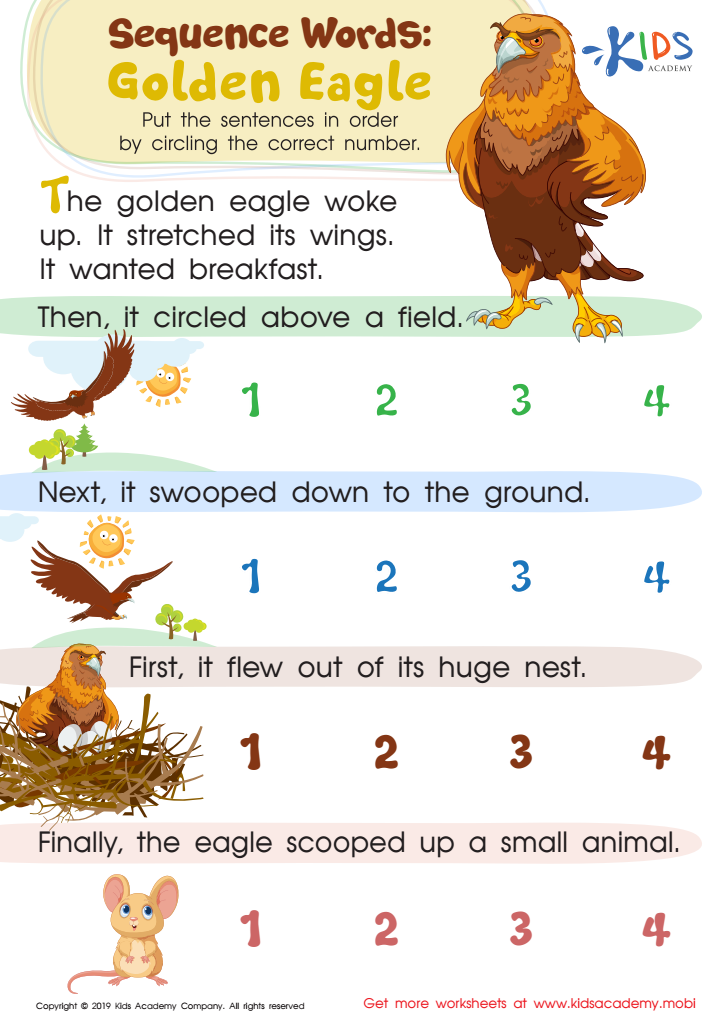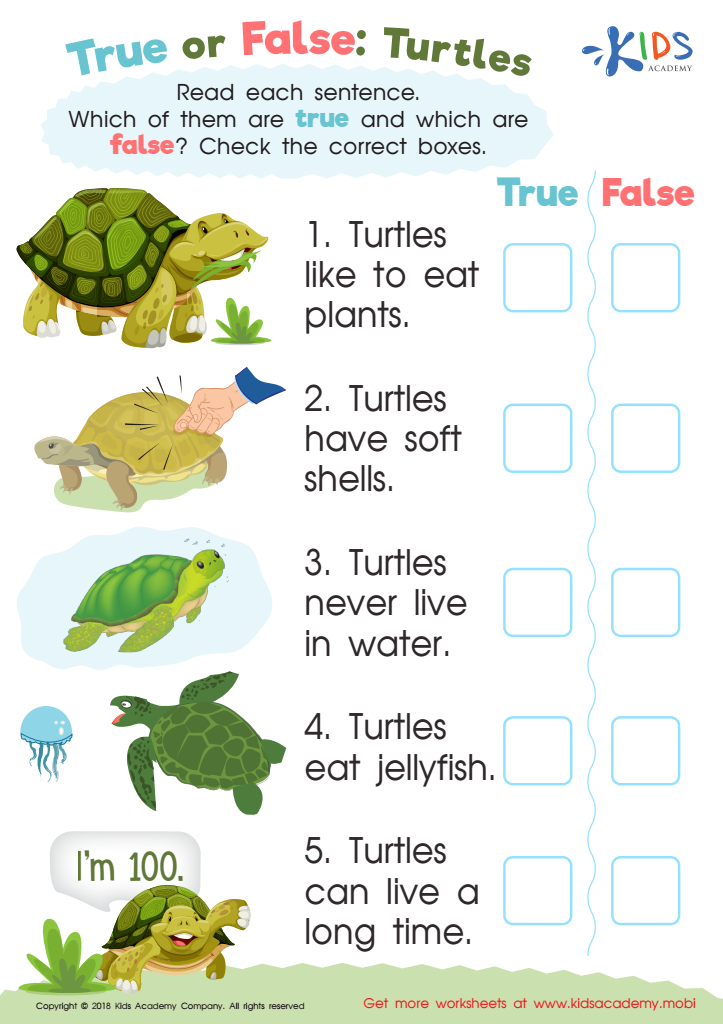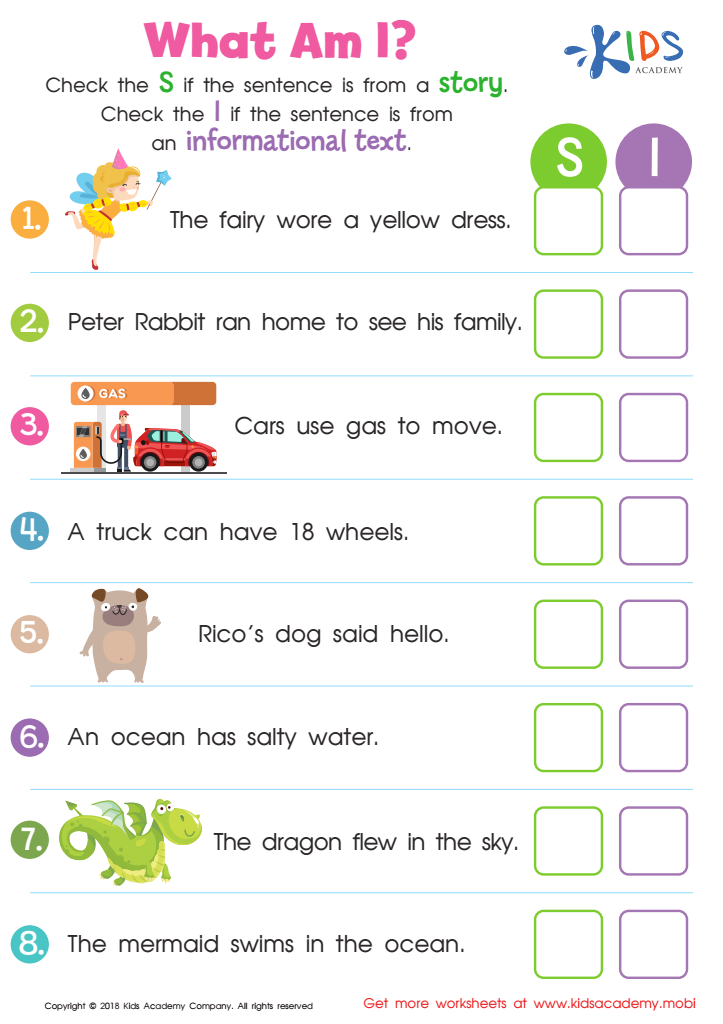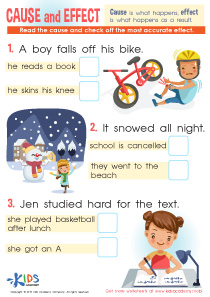Logical Reasoning Normal Reading Non-Fiction Worksheets for Ages 6-8
3 filtered results
-
From - To
Enhance your child's critical thinking with our Logical Reasoning Normal Reading Non-Fiction Worksheets for ages 6-8. These engaging, print-friendly resources are designed to improve comprehension skills while fostering logical reasoning. Tailored to young learners, each worksheet features relatable non-fiction topics that spark curiosity and encourage discussion. Students will tackle thought-provoking questions and challenges that reinforce their understanding of the material. These worksheets are perfect for classroom use or home learning, providing a fun and effective way to support literacy and analytical skills development. Boost your child's confidence in reading and reasoning with our meticulously crafted learning tools today!


Sequence Word Eagle Worksheet


True or False: Turtles Worksheet


What Am I? Worksheet
Logical reasoning skills are crucial for children aged 6-8, as they lay a foundation for critical thinking and problem-solving essential in everyday life. Engaging with non-fiction texts that emphasize these skills helps children learn how to analyze information, discern relationships, and make logical conclusions.
By incorporating Logical Reasoning into reading non-fiction, children develop their ability to connect concepts and understand the world around them. Non-fiction texts, such as those about nature, science, or history, often present facts that prompt young readers to think critically about what they learn. This not only boosts their comprehension but also encourages curiosity and an interest in learning.
For parents and teachers, fostering these skills is vital because they contribute to academic success and a love for reading. Logical reasoning enhances literacy by enabling children to evaluate and understand the information presented in texts. Additionally, skills gained from non-fiction reading extend beyond academic contexts, making children more adept problem solvers in real-life scenarios.
Supporting this type of learning creates confident readers who can navigate complex information, ultimately guiding them toward becoming informed decision-makers in an increasingly complex world. Therefore, prioritizing Logical Reasoning Normal Reading Non-Fiction is essential for holistic child development.
 Assign to My Students
Assign to My Students

















